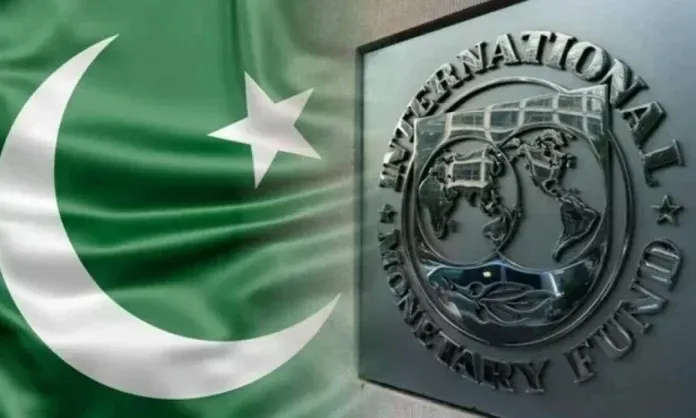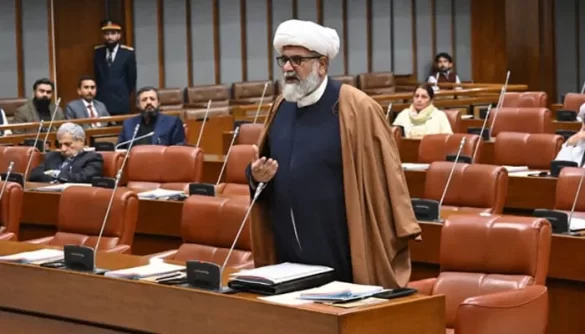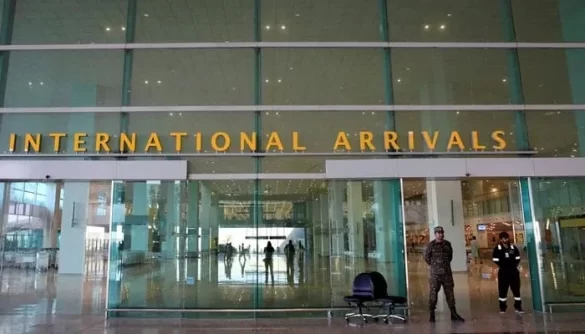The International Monetary Fund (IMF) has allowed Pakistan to resume wheat procurement to rebuild its depleting reserves, granting the government the discretion to determine its strategic stock level and proceed with the purchase of 6.2 million tonnes this year, a senior official confirmed on Monday.
According to Ahmed Umair, the Prime Minister’s Coordinator on Agriculture, the announced rate of Rs3,500 per 40 kilogrammes is not a fixed support price but an indicative rate aligned with global market trends and subject to revision.
A day earlier, the Prime Minister’s Office had said that both the federal and provincial governments would jointly procure wheat at this rate. Umair clarified that the IMF had endorsed Pakistan’s plan to rebuild strategic reserves.
IMF Policy and Market Background
The IMF had previously barred the federal and provincial governments from market intervention in September last year — a restriction that led to a collapse in domestic wheat prices, which fell as low as Rs2,200 per 40kg from a peak of Rs5,500.
Asked whether the Rs542 billion procurement qualified as a “strategic reserve,” Umair said the IMF had left that decision to Pakistan’s discretion.
The move comes weeks before the IMF board reviews Pakistan’s request for the second tranche of its $7 billion bailout package and the first review of the $1.4 billion climate resilience facility.
IMF Mission Chief Iva Petrova said last week that Pakistan was reforming its commodity markets to reduce government intervention and promote a more productive and internationally competitive agricultural sector.
Wheat Policy 2025–26 Approved
After a meeting with provincial chief ministers, Prime Minister Shehbaz Sharif approved the new Wheat Policy 2025–26, allowing procurement of 6.2 million tonnes for the 2025–26 season at Rs3,500 per 40kg, in line with international import parity prices.
While there was consensus on supporting the farmers, differences emerged over pricing. The Sindh government proposed a rate of Rs4,000 per 40kg, which the federal government opposed. The issue was referred to Deputy Prime Minister Ishaq Dar for resolution.
Umair said the Rs3,500 rate was based on international prices including transport costs, and the pricing methodology had been shared with — and endorsed by — the IMF.
However, Sindh Agriculture Minister Muhammad Bux Mahar demanded a higher support price of Rs4,200, echoing a similar call from the Pakistan Peoples Party’s Central Executive Committee (PPP-CEC).
Read More: Wheat Prices Surge, Driving Flour Costs Higher Across Pakistan
Procurement and Storage Plan
Under the approved plan:
The federal government will procure 1.5 million tonnes, including 500,000 tonnes for special areas.
Punjab will buy 2.5 million tonnes, Sindh 1 million, Khyber Pakhtunkhwa 750,000, and Balochistan 500,000 tonnes.
Smaller provinces will also purchase wheat from Punjab and Sindh. Storage for the 6.2 million tonnes will cost around Rs125 billion annually.
Following the abolition of the Pakistan Agricultural Storage and Services Corporation (PASSCO), the private sector will handle procurement and storage on behalf of the government.
Sources said that Sindh will procure its entire share independently, while in other provinces, private firms will be compensated for procurement, storage, and financial costs under a government licensing system.
Policy Reversal and IMF Commitments
The initial IMF-backed plan aimed to end wheat import and export restrictions and let market forces determine prices. However, the latest decision effectively reverses that liberalization step.
According to the IMF’s first review report, Pakistan had earlier pledged to avoid wheat procurement operations and credited the resulting price decline for easing food inflation.
The IMF had also urged Pakistan to extend similar reforms to other commodities and strengthen competition laws to foster a more agile and consumer-friendly agricultural sector.















